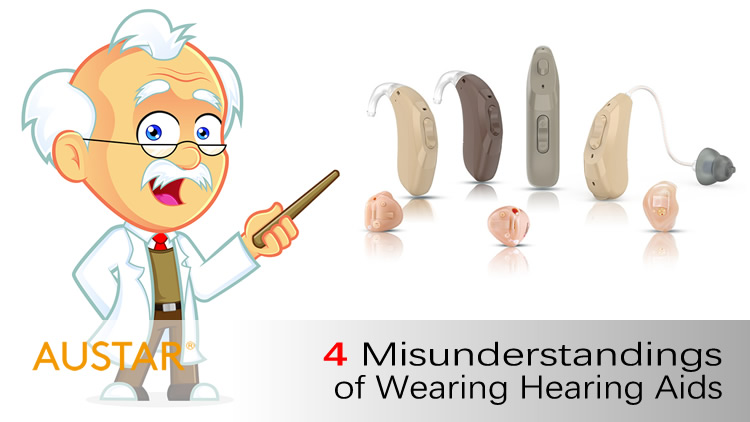- Home
- Hearing Loss
- Audiology
4 misunderstandings of wearing hearing aids
2023-01-17Hearing impairment, for adults, affects both daily work and harmonious communication in family life. For children, it will also affect language development, so early detection, early intervention, and early treatment are required. Therefore, an important way to solve the problem of hearing impairment is to wear hearing aids.
The human auditory system is a very complex system, and hearing aids are a very sophisticated electronic device formed by the application of high technology. To be able to hear sound through hearing aids, but also to hear comfortably and clearly, is the good wish that every hearing-impaired patient aspires to achieve. However, we also have 4 major misunderstandings when wearing hearing aids:

1. Hearing aids will become more deaf the more you wear them
Hearing aids are Class 2 medical devices, fitting hearing aids requires a rigorous and scientific process, need to go through professional equipment for hearing examination, and according to the user's hearing loss, listening needs to choose and debug hearing aids. Therefore, in the optional hearing aid, please go to the hospital or professional hearing testing institution, after excluding your own factors, the hearing aid after professional debugging will not appear more and more deaf. It is recommended to buy hearing aids instead of hearing amplifiers (PSAPs), hearing aid is a sound-amplifying device intended to compensate for impaired hearing.
2. Try on someone else's hearing aids
This approach is wrong, wearing hearing aids is the same as wearing glasses, you need to choose according to your own situation. Many elderly people often inquire in many ways before choosing hearing aids, to see what others wear, how much the price is, and even appear that others say that hearing aids have a good effect, and they also wear others' to try. The effect of this audition is not ideal, it may be too loud and noisy, or it may not be effective. Everyone's hearing loss and listening needs are different, according to their own hearing condition for fitting, such a hearing aid is the most suitable for themselves.
3. When you can't hear, get a hearing aid
"When you can't hear, then use hearing aids" is a major misunderstanding of hearing-impaired people. It is familiar with the problem of "myopia, wait until you can't see at all and then wear glasses". In fact, glasses and hearing aids are tools to assist correction, glasses are to help myopic people, hearing aids are to help hearing impaired people. In fact, our ears have the phenomenon of "use in and out", when we have hearing problems but do not intervene in time, we will become more and more insensitive to sound, the response is getting worse and worse, and the brain's ability to distinguish speech is getting worse and worse. Even if interventions are taken at a later stage, it is likely that you can hear the sound but not understand it. This is because our brain's auditory center deteriorates due to not being stimulated by sound for a long time. Therefore, the earlier the intervention is taken, the better the effectiveness of hearing aids.
4. After wearing hearing aids, the ears are normal
Many elderly people will think of hearing aids as an artifact before choosing hearing aids, and think that they can immediately understand and hear clearly when wearing hearing aids, but in fact this is not the case. First of all, hearing aids are only a tool to assist listening, which will acoustically compensate according to the hearing of hearing impaired patients to help patients listen, but they cannot replace the human ear for fine processing and resolution of sound. Wearing hearing aids should be a gradual process, because on days without hearing aid intervention, our ears are in the stage of missing sound stimulation, and naturally the ability to understand sounds will decrease, so it is as difficult to wear hearing aids as normal ears. After wearing hearing aids, you need to constantly cooperate with language stimulation training and gradually improve your speech discrimination ability to achieve better listening.
Purchasing hearing aids, OEM hearing aids, choose AUSTAR, 20 years of industry experience, with medical standards of professional hearing aid manufacturers, to provide you with market competitive hearing aids.
Latest
Audiology













All 0 comments